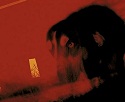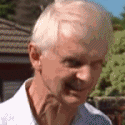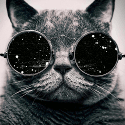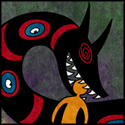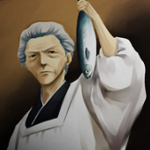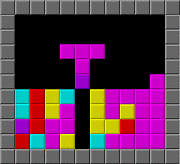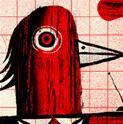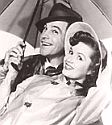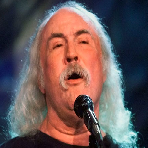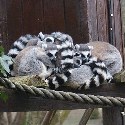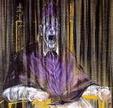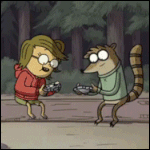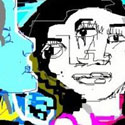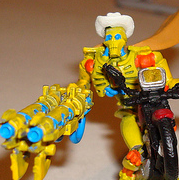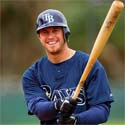|
Since January's over, here's my first update to the Stravinsky list. Doing well so far: 1. The vanilla read a set number of books in a year. 2. 3. 4. Philosophy 5. History 6. 7. A collection of poetry 8. Something post-modern 9. 10. The Blind Owl (Free translation if your ok with reading on a screen or cant find a copy!) 11. Something on either hate or love 12. Something dealing with space 13. Something dealing with the unreal 14. Wildcard (Some one else taking the challenge will tell you what to read) 15. 16. That one book that has been sitting on your desk waiting for a long time 17. A play 18. Biography 19. The color red 20. Something banned or censored 21. Short story(s) 22. A mystery Books read in January: 1. William Gibson, "The Peripheral" 2. Jacqueline Carey, "Kushiel's Dart" The kind of thing I'd usually avoid, as I'm not much into huge fantasy novels these days and the packaging makes it look like a romance novel wrapped up in fantasy trappings, but it came recommended by a Goodreads friend who's usually spot on with her tastes, so I gave it a shot. It was surprisingly well-written, tightly plotted and felt a lot like a less misogynistic take on the whole GoT/Dune "scheming houses" plot - but as the book goes on the protagonist gradually becomes a bigger and bigger Mary Sue until nearly every major character in the book has given a monologue about how great she is. Also it was long as balls. Not terrible, but I doubt I'll read the rest of the series. 3. Michel Houellebecq, "H. P. Lovecraft: Against the World, Against Life" Fantastic: a series of three essays about Lovecraft's life and work written right before Houellebecq blew up in France. Has the best treatment of HPL's racism I've seen and informs Houellebecq's future writing nearly as much as it dives into Lovecraft's (It's no accident the phrase "elementary particles" is used like five times). 4. Kenzaburo Oe, "A Personal Matter" A self-centered manchild has a complete breakdown when he finds out his child was born brain-damaged, goes on a multi-week bender and concocts fanciful plots to have the baby murdered. Oe is an absolute master prose stylist; able to make you feel horrible for the narrator and utterly loathe him in the space of two sentences. Goes to some dark places - every husband or father who reads it will likely have some of them hit uncomfortably close to home. The ending felt kind of hokey and undeserved. 5. Thomas Pynchon, "Inherent Vice" I just finished this, and my initial impression is that it's a very smart book pretending to be a very stupid one. It's my first Pynchon, and "Gravity's Rainbow" is my "book you've had sitting on your desk forever book," so it definitely won't be my last. Currently about to start The Satanic Verses, which is both a book I've always wanted to read and will also fill the 'banned books' checkbox. Any recommendations for a good book of poetry for someone who is pretty much poetry illiterate? I tried a book of Rilke's poetry and couldn't get through ten pages of it; poems are not usually my thing.
|
|
|
|

|
| # ? Jun 3, 2024 08:41 |
|
Burning Rain posted:6. Jeff VanderMeer - Authority (Southern Reach, #2). I found it much more boring than the first book of the series or VanderMeer's short stories. Maybe it's because I don't care about the characters personal troubles and mommy issues in a sci-fi book about crazy, mysterious happenings that threaten to destroy the world. My opinion (and I think the general consensus) is that the second book is the weakest, by quite a bit. I agree with your take on it, the parts that actually dealt with Area X were pretty interesting but the main character is a bore and it's hard to care about his back story much. The third is definitely worth sticking it out for and parts of it read a lot more like the first.
|
|
|
|
I've been focusing more on writing and not enough on reading, so count me in for the OP challenge. I'm going to be a bit conservative and shoot for 40 books total this year, starting today.
|
|
|
|
I've given it an embarrassing amount of thought and have decided to take on the booklord's challenge after all. So far: 1. The vanilla read a set number of books in a year. (5/45) 3. The non-white author 4. Philosophy 5. History 6. An essay 7. A collection of poetry 8. Something post-modern 9. Something absurdist 10. The Blind Owl 11. Something on either hate or love 12. Something dealing with space 13. Something dealing with the unreal 14. Wildcard (Some one else taking the challenge will tell you what to read) 15. Something published this year or the past three months 16. That one book that has been sitting on your desk waiting for a long time 17. A play 18. Biography 19. The color red 20. Something banned or censored 21. Short story(s) 22. A mystery Could someone wildcard me, please?
|
|
|
|
oliven posted:Could someone wildcard me, please? Musicophilia by Oliver Sacks. It'll also give me motivation to read it (it's gonna be my "on my shelf for ages" book  ) )
|
|
|
|
ToxicFrog posted:14. Reasons for the Decision of the Associate Chief Justice J.D. Rooke in Meads v. Meads (2012 ABQB 571) by J.D. Rooke Are you a Popehat reader, too? That's where I first came across these two items within a shared context. Pretty fascinating stuff. Also, that Alberta judge did a fantastic job writing his analysis. January 1/24 1. Foucault's Pendulum - Umberto Eco. This didn't end as I had expected it would, but that is probably because I felt too optimistic about the protagonist's character. As usual, an Eco book is a mental gymnastics course. I always feel obligated to do homework so that I can understand the foreign language quotes (for the love of god, I don't speak French or Italian, so why am I doing this?) and grasp at least some of the references. I came out of the book more interested in Spain's revolutionary history, so one of my next reads will probably be some historical nonfiction. This probably counts as a mystery. (I'm saving that post-modern appellation for Jest.) Still working on the Tree and the Labyrinth, but I started Mort(e) last night. I really expected a little more from the premise, but I probably shouldn't have. I wouldn't recommend it, but I feel obligated to finish.
|
|
|
|
So far for January: 1. Worm by wildbow - It took 2 months but by God I finished it. I'm so glad I stuck with it. The first few chapters do not pull you in much, but once you get to the superhero fights its incredible. Wildbow does a great job of creating tension, writing action, and developing a huge array of characters. I will say that occasionally the action sequences go on a bit too long, and you can definitely tell it is a first draft. Wildbow doesn't spell out everything for you, which makes the book more challenging and rewarding to read. I am hoping someone added up the death count for this, though. Its like he read the Battle of Hogwarts and the Red Wedding and said, "Meh, I can do better." Just started Red Rising for the Challenge. So far it is precisely Hunger Games...iiinnnnn spppaaaaace. I feel like the author didn't think things through too much with the caste system, its very jarring having Reds, Blues, Yellows, Silvers, Golds.....and obsidian. I guess I should be glad he decided against calling the murder caste the Blacks.
|
|
|
|
RedTonic posted:Are you a Popehat reader, too? That's where I first came across these two items within a shared context. Pretty fascinating stuff. Also, that Alberta judge did a fantastic job writing his analysis. I read Popehat and Lowering the Bar, but not consistently. I didn't get those links from either blog; IIRC, I found them in another thread on SA.
|
|
|
|
Huh, must be more readers of those blogs here than I figured! Anyway, I've had a little time to catch up on reading. Mostly delicious junk reading... 7/24 novels read. 2. Read a female author- re-read Elizabeth Moon's Echoes of Betrayal, which I last read a year or so ago. Forgot I had already received a copy as a gift and purchased an e-book edition. Finished up the Paladin's Legacy set by also reading Limits of Power and Crown of Renewal. I was mostly satisfied with how these tied up the Paksworld books. I assume there won't be any more books published in that setting, though Moon did leave herself some opportunities for further stories there. I was disappointed with how Dorrin's tale was ended. She was a protagonist with many ties to other characters in the series, but her ending turns away from those social links entirely. It didn't suit her development. The additional gnome-based stuff was rad, though. Love them gnomes. Also read Emmi Itäranta's Memory of Water. It was a pretty quick read, and good, but something really nagged at me the whole time: how did Scandinavia adopt Sen no Rikyu's tea ceremony as an embedded cultural practice of their own in this setting? Why are those trappings necessary for the story? As a novice in chanoyu myself, that stuck with me and not in the good way I had hoped for. The question went unanswered. I do hope to see another novel. The ending tried for the typical turning away from the tale, but Itäranta either couldn't or wouldn't go all the way with it. Could have been an editorial demand. 11. Read something on love - Robert Repino's Mort(e). Domesticated animals! Ants! A genocidal war against humankind! I expected a fun read, but that wasn't really what I ended up with. Repino was focused on making this a dour slog with dreadful maundering on the nature of religion, love, and humanity. Dreadfully dull, poorly paced, thinly characterized, yadda yadda. Kind of read like someone was going to write furry erotica but decided to clean it up for a general audience and then tack on poorly thought out cultural criticism for depthiness' sake. I finished it because I feel compelled to finish books I start. 12. Read something about space- Iain Banks' Against a Dark Background. I've read nearly all the Culture novels at this point, but I always enjoy Mr. Banks' style. I was saddened by his passing last year; that was the loss of a strong voice. The death toll of named characters in this novel was pretty damned high, but while I liked the characters, I didn't feel much sorrow for their deaths. They felt like pretty inevitable endings, and since few of them were more than barely sketched out, I wasn't terribly attached to them. The protagonist's voice didn't leave them much room. By the end there were still some unexplained questions, like why Cenuij disliked dear protag so strongly and the Huhsz's response to their quarry's fate. Might read Tennessee: A Short History next. Still have not completed From the Tree to the Labyrinth.
|
|
|
|
thespaceinvader posted:1: Cryptonomicon by Neal Stephenson I think you'll find it's a little bit more complicated than that wasn't really a book as such; it was a collection of occasional essays and journal articles, but mostly collected columns from the Grauniad, by Goldacre on his usual topics of bad science and bad science reporting. It was eloquently, elegantly ranted (written might be being kind) and easy to pick up and put down, and very, very entertaining. But above all, I think it was important. It points out just how prevalent and how poorly conducted bad science and bad science journalism can be; it's a whole industry built around fundamental flaws in understanding, comprehension and education, not to mention occasionally in honesty and plain human decency. It really brought home to me why I'm so aggressively cynical about science reporting in the news, because most of it is, at best, inaccurate and at worst, blatant loving lies. I don't know what's to be done about it, but seeing this all together in one place makes me wonder what I can do to help. Next is probably my last Crimble pressie, Testing Treatments, second edition.
|
|
|
|
10. The Paper Magician - Charlie N. Holmberg - The concept itself is fairly interesting but the book doesn't really meet its true potential. There is so much about this world of magic (based around bonding oneself to a material to manipulate) that doesn't get talked about or discussed. The main character is a bit too special and a bit too perfect, but I think for a YA reader looking to scratch that Harry Potter itch, they could do a lot worse. 11. The Concrete Blonde - Michael Connelly A fairly standard Mystery/Thriller. I haven't read a lot of Connelly, but I really enjoy his work. It isn't the sort of stuff that sticks around and lingers when you are done, but it makes for an entertaining read when you don't want to think.work too hard at a book. 12. Shame of the Nation - Jonathan Kozol. The premise of this book is pretty straight forward. The public schools of our nation have become segregated again along racial lines. People will deny race being a factor, or explain that this isn't intentional, but it totally is. This book is the frustrating, depressing, infuriating book that explains how racial segregation has returned to schools and looks at its impact of children. While 10 years old, everything in this book rings just as true today, which is sad. 13. McSweeny's #46 - this volume is a collection of Crime stories written by Latin American authors. The premise is interesting and the stories are of fine literary quality, I just wished I enjoyed reading collections of Short Stories. Getting a new McSweeny's every few months has been a lot of fun for the last year, and the books are beautiful, but I just don't get the enjoyment from them I wish I would. 14. Dirty Daddy - Bob Saget. It is interesting to get a chance to see who this guy really is, because he isn't the clean cut guy you watched on TV as a kid, nor is he the dude who yelled, "have you ever sucked dick for weed?" he is somewhere in the middle. The book makes him seem a bit depressed. There are some funny parts, but this book isn't a laugh riot by any means.
|
|
|
|
RedTonic posted:11. Read something on love - Robert Repino's Mort(e). Domesticated animals! Ants! A genocidal war against humankind! I expected a fun read, but that wasn't really what I ended up with. Repino was focused on making this a dour slog with dreadful maundering on the nature of religion, love, and humanity. Dreadfully dull, poorly paced, thinly characterized, yadda yadda. Kind of read like someone was going to write furry erotica but decided to clean it up for a general audience and then tack on poorly thought out cultural criticism for depthiness' sake. I finished it because I feel compelled to finish books I start. So that's a no? It looks beautiful, sounds exciting and fresh, but it's definitely not a recommendation? Could save myself some money...
|
|
|
|
thehomemaster posted:So that's a no? It looks beautiful, sounds exciting and fresh, but it's definitely not a recommendation? Could save myself some money... A solid nope. Save the money.
|
|
|
|
david crosby posted:The Torch In My Ear by Elias Canetti. Quality review. More david crosby, more I say! Wow, 4 books read. Michael Faber is pretty cool writer. Plain prose, but good ideas. Science fiction, or I guess speculative, but without all that boring world building poo poo that seems to infect most sci fi. Loved the increasingly desperate letters from Bea, the wife at home in basically a UKIP infected hinterland, to Peter a gloriously obsessive born again type banging on about some verse or another. Is there love without intimacy is what Faber asks. No I guess. 1. 4 Books. Wind up bird chronicle, Murukami Brothers Karamazov, Dostoyevsky Mindset: how you can fulfil your potential, Carol Dweck Book of Strange New Things, Michael Faber 2. Female author - Dweck
|
|
|
|
knees of putty posted:Quality review. More david crosby, more I say! Thanks my man. Got two more coming down hard: A Tale of Two Cities by Charles Dickens This is the first Charles Dickens book I've ever read! I thought it was pretty excellent, with some reservations. The main plot, which I'm sure everyone knows, is like a family chronicle set before and during the French Revolution. The Manette family is from Paris originally, but move to London becuz its better there, and you're less likely to be put in prison by a wealthy French aristocrat. There are a couple of dudes who want to hook up with the Noble & Pure daughter, Lucy Manette, and through an absurd coincidence the two most important suitors look almost exactly alike. One is a lazy drunk, so he's romantically out of the picture, but he tells the daughter that if he ever had a chance, he'd die for her and her's. Spoiler alert: he does, at the end, in what to me is an amazing & beautiful scene that is also dramatically contrived. The idea of nobly sacrificing your life for someone else's is obviously a big tear jerker, and the last 3 pages were intensely moving. BUT, on the other hand, the narrative wraps up the way it does because the two main dudes look exactly alike? Even though they're not related? And they love the same woman? So the one busts the other dude outta prison and takes his place at the guillotine (spoiler alert)? Dickens, to me, is a cool guy who has loads of sympathy for the poor and downtrodden, like a Victorian era anti-Ron Paul. Also, check out the first sentence of the novel, written out in it's entirety: quote:It was the best of times, it was the worst of times, it was the age of wisdom, it was the age of foolishness, it was the epoch of belief, it was the epoch of incredulity, it was the season of Light, it was the season of Darkness, it was the spring of hope, it was the winter of despair, we had everything before us, we had nothing before us, we were all going direct to Heaven, we were all going direct the other way - in short, the period was so far like the present period, that some of its noisiest authorities insisted on its being received, for good or for evil, in the superlative degree of comparison only. Most ppl only quote the first 12 words, which is missing the point entirely, because the whole sentence is really funny and ironic, and like subverts the whole meaning of these contrasted extremes. The part about the 'noisiest authorities' seems to me like an implicit criticism of people who only quote the first line, they are the noisy authorities who are blown away by the lame comparison of saying that the times were both good and bad. anyway, good book, I give it a solid 4/5 the next book I read was Sibelius: A Composer's Life and the Awakening of Finland by Glenda Dawn Goss This was a biography of Jean Sibelius, the Finnish composer. It is sorta framed around the idea that the work is doubly biographical and historical; It sets personal details of Sibelius' own life with like major historical events in the development of the modern nation of Finland. Did u know that Finland wasn't a nation until like 1917? it was a Russian independent province, and before that it was Sweeedish. So there were lots of trends in Finland from lets say 1880 to 1919 about like being Finnish, what that meant, making Finnish art, poo poo like that. Which Sibelius was right in the middle of, so thats kinda cool. It was neat to read interpretations of works I'd heard before in this like (to me) new nationalistic light. The big question everyone wants to know the answer to when u talk about Sibelius is this: why did he stop composing for the last thirty years of his life? Mrs. Goss sorta hints that his creative inspiration dried up when the Finnish question was definitively settled, and he just like sat around his house for thirty years? I don't find this answer satisfactory! I guess it's always gonna be a mystery why one of the greatest composers of all time just jerked around for thirty whole massively long years instead of writing more masterpieces. Anyway I didn't like this book that much. Sibelius's life is pretty boring, esp. when compared to some other neat composers like Shostakovich, f'r example. I Give This Book A 2/5 so that's 6/40 read for the year, plus the Dickens book is about love and hate, and the Sibelius biography is a biography, so I'm working my way thru Stravinsky's list.
|
|
|
|
You got any recommendations for a Shostakovich biography? Topical content: I listened to the audiobook of The Disaster Artist, which was fascinating when it was about the actual topic of the book and utterly uninteresting when it was Greg Sestero talking about his non-Room-related career. Also, Sestero is such a weak-rear end selfish yes-man that he comes off almost as bad as Wiseau in his own way. Now I'm gonna finish Falstaff, which I'm not enjoying terribly much. I'm still just a quarter of the way through though so it's got plenty of room to change my mind. Mahlertov Cocktail fucked around with this message at 12:15 on Feb 13, 2015 |
|
|
|
thespaceinvader posted:1: Cryptonomicon by Neal Stephenson But it's all about trust between patients, doctors, and the pharmaceutical industry, and that's really, really hard to build. I wish I knew more about how to do it. It's a good book. It's also free online if you're interested (you should be interested) http://www.testingtreatments.org/tt-main-text/the-book/ Not sure what's next. Something short and light, probably, I'm so hilariously behind.
|
|
|
|
Mahlertov Cocktail posted:You got any recommendations for a Shostakovich biography? Yeah, check out Shostakovich: A Life Remembered by Elizabeth Wilson. It's a biography based upon interviews done with ppl who were important in DSCH's life, like his wife, kids, etc. Elizabeth Wilson was a student of Mistislav Rostropovich, so she gets some interviews with the master cellist and a couple other famous Russian musicians, too. For just a straight biography, I've heard Laurel Fay is the current top Shosty scholar, but I haven't read any of her stuff yet.
|
|
|
|
Next up Owen Jones and Chavs, demonisation of the working class. It laid bare in a strident polemic all the fallacies around sponging welfare cheats whilst also hypothesising that the difficulties faced in the post industrialised regions of the UK can be attributed to a wilful neglect of jobs provision and destruction of working class communities. I suspect he is right, but the message was constrained by lack of access to interviewees with real political insight, e.g., Hazel Blears was hardly a powerful force in British politics. Atwood beckons. 1. 5 Books. Wind up bird chronicle, Murukami Brothers Karamazov, Dostoyevsky Mindset: how you can fulfil your potential, Carol Dweck Book of Strange New Things, Michael Faber Chavs, Owen Jones 2. Female author - Dweck knees of putty fucked around with this message at 16:54 on Feb 17, 2015 |
|
|
|
david crosby posted:Yeah, check out Shostakovich: A Life Remembered by Elizabeth Wilson. It's a biography based upon interviews done with ppl who were important in DSCH's life, like his wife, kids, etc. Elizabeth Wilson was a student of Mistislav Rostropovich, so she gets some interviews with the master cellist and a couple other famous Russian musicians, too. Thanks dude! I'll check em out 
|
|
|
|
thespaceinvader posted:1: Cryptonomicon by Neal Stephenson It made me realise though, what bothers me about most urban fantasy stuff - it's the idea of the masquerade, or the underworld, or what have you - the other side of the city unknown to most people. I just... struggle with the idea that something like that could be around since time immemorial, and remain a secret. The idea that in a world where magic exists, has demonstrablle physical reality, can make peoples blood explode... people would generally just dismiss it as fairy stories. What I've been hankering for is a detective story set in a world where magic is commonplace, everyone knows about it, everyone uses it to a greater or lesser extent... and within that, there's a police procedural or noir detective novel going on. I almost got it with Alloy of Law, and I'm really looking forward to the next in that series. Next is the Shattered Streets again by Cornell.
|
|
|
thespaceinvader posted:What I've been hankering for is a detective story set in a world where magic is commonplace, everyone knows about it, everyone uses it to a greater or lesser extent... and within that, there's a police procedural or noir detective novel going on. I almost got it with Alloy of Law, and I'm really looking forward to the next in that series.
|
|
|
|
|
I am going to take up the challenge, mostly so I will actually write something about books after I read them for once. 1. The vanilla read a set number of books in a year. [12/52] 4. Philosophy 5. History 6. An essay 7. A collection of poetry 9. Something absurdist 10. The Blind Owl (Free translation if your ok with reading on a screen or cant find a copy!) 11. Something on either hate or love 13. Something dealing with the unreal 14. Wildcard (Some one else taking the challenge will tell you what to read) 17. A play 18. Biography 19. The color red 21. Short story(s) 22. A mystery 1. The Son (Philipp Meyer) This book tells the story of a Texas family covering 1850s to present day, mainly skipping between the perspective of three individuals. As is often a problem with POV book, I found myself more interested in one POV than the others and getting frustrated by the intervening chapters. The character holding the book together really is Eli but the other POVs do work nicely to provide differing opinions on Eli. Nonetheless it's worth reading, particularly for the sections about the Comanche. 2. A Meal in Winter (Hubert Mingarelli) The title of this novella lays out the central event of the book - a meal between adversaries during WWII. The book is written in first person from the perspective of an individual working as a group to round up Jews hiding in the Polish countryside and essentially is a day in the life of. 3. Half of a Yellow Sun (Chimamanda Ngozi Adichie) About Nigeria in the 1960s, focusing on a group of upper class individuals and the impact of the Biafran war on their lives. This is another POV book, from the perspective of a Igbo woman, her house boy and an English man (the boyfriend of the woman's sister). I'm completely ignorant of Nigeria, never mind the Biafran war, so cannot comment on accuracy. For me the POV style worked better in this book than The Son. The book is divided into two time periods (Early and Late Sixties), with each covered twice. Certain events are skipped the first time and we are left to guess at what exactly happened, these are filled in the second time the period is covered, this was a nice twist to the usually POV set-up. 4. Invisible Cities (Italo Calvino) I read this because it is the book of the month and not something I would usually consider. Marco Polo describes cities to Genghis Khan... I like this book, if I'm not sure quite why. Even though the cities fly by it is quite relaxing in a way. The cities are divided into themes (some odd like "Thin Cities" others more descriptive). I think it merits a reread down the line to better grasp the themes. 5. Troubles (J.G. Farrell) The last paperback book I bought before I got my ereader and has been neglected ever since. A crumbling formerly grand hotel (and its anglo-irish denizens) mirrors the disintegration of british rule in Ireland during 1919-1921 and more generally the British Empire. At the outset we know the story will end inevitably with the destruction of the hotel and we follow the insular concerns of the residents and their troubles as outside troubles overtake them. The general political situation is interspersed in the text as a serious of newspaper articles. An interesting view of a world which no longer exists. 6. Ancillary Justice (Ann Leckie) This book has received a lot of attention over its treatment of pronouns/gender. The narrator is the remnants of a ship's AI from a society of humans which seemingly is gender blind. Therefore narrator is unable to tell genders off-hand, refers to everyone in her internal monologue as "she" and misgenders people from other societies. To me this was the least interesting aspect of a book I enjoyed. There didn't seem to be a point to this within the story told. What was interesting for me was the concept of an AI which controlled and saw through the eyes of many bodies (ancillaries) and then found herself localised to one body only. This created a contrast between the flash backs, where we receive abundant information about a situation, to the present crippled state of the AI, where only one ancillary remains. 7. Ancillary Sword (Ann Leckie) The sequel to Ancillary Justice. This book deals only with the present and while this is necessary since this previous book finished the flashback plot, I found myself missing the contrast between the chapters. The story was ok, the ending is a bit abrupt, very much suffering from middle book syndrome. The book was disappointing after Ancillary Justice. 8. Boy A (Jonathan Trigell) I didn't like this much, I had previously seen the film version and it's probably better just to watch that. 9. The Absolutist (John Boyne) From the outset we know that the main character Tristan is somehow involved in his friend Will's death, the events leading up to the death are mixed with chapters dealing with Tristan's visit to Will's sister, ostensibly to return the letters she had sent to Will. Things couldn't possibly (and don't) end well. I don't want to give the story away, so suffice to say I recommend it. 10. Borstal Boy (Brendan Behan) It was one of the many, many books banned here (Ireland) and I kept that in mind while I read it. The book is about the author's time in borstal, a prison for young offenders, in the UK in the 1940s. The reasons why it was banned in the past are obvious enough: the author is an IRA member, a socialist, is critical of the Catholic church, is excommunicated and there are frequent comments about sexuality, especially homosexuality. This book is primarily a coming-of-age for the author and we see his attitudes change as he gets to know his "enemy" and experience something outside of the society he was raised in. A nice book, though not everyone will like the song lyrics and poems throughout. 11. Germany Memories of a Nation (Neil MacGregor) This book was a present. It's a long time since I read a book with lots of colour pictures, we get a whirlwind tour of probably the most important events in the german-speaking world over the last ~500 years shown through important artwork, objects and buildings. It accompanies a BBC radio series. 12. The Black Velvet Gown (Catherine Cookson) Formulaic, easy read while I was sick. Anyone like to suggest a wildcard?
|
|
|
|
So I decided I'd read some books written by goons. Here's one! 8/24 22. A mystery. The Golden Assassin, by Chris Drumm. I intend to leave an amazon review of this because more reviews always help! Assassin is a murder mystery in a steampunk/fantasy setting. I do like -punk stories where class differences are actually explored and earn the genre name, so this hit the spot. The writing suffers from some amateurish decisions (in the first few pages, we read a description of the protagonist's appearance when he looks in a mirror; the ending is hit by a sudden compulsion to reveal the villain's cleverness all at once) and odd pacing. A mission unrelated to the central story takes up a huge chunk of the middle of the novel, and while it was an interesting job, I wanted to get back to the intrigue and investigation part of the story. The central structure of the tale revolves around a caste system beginning to fail and ancestral ghosts who return to grant magic to their descendants, and the story hangs quite well on these actually important bits of world-building. I say "actually important" because as a reader (and horrible writer) of fantasy myself, I know the general pattern is to shovel in loads of (never used) setting. Drumm fairly neatly avoids that. This novel is apparently the first of a series (a trilogy?) though I don't believe the others have been released. Think I'm going to try Sekret next. It's set in Russia, so that qualifies as red, right?!
|
|
|
|
Went on holiday recently, so I was able to read a few books. #9: Byzantium - The Apogee - John Julius Norwich: The second book in JJN's 3-part history of Byzantium series. What I learned was that, with better luck and more competent leaders, Byzantium may have been able to keep going for longer than it did. At the very least, the Battle of Manzikert didn't have to have such major negative consequences for Constantinople. 4/5. #10: The Count of Monte Cristo - Alexandre Dumas: The part everyone remembers about this book (the protagonist going to prison) takes up a relatively small part of the book. There is a lot more to Le Comte than the basic plot would imply. It took me a long time to read it on Kindle, but I finally finished it. 4/5. #11: The Fever - Megan Abbott: In which a group of teenagers fall ill to a mysterious contagion... or not, because it's a bit more complicated than that. It was OK, but some parts were more interesting than others. 3/5. #12: The Mad Ship - Robin Hobb: The second part of RH's Liveships trilogy. One goon said on Goodreads that a big theme of this book is men being useless, and that's a good description. Definitely interested to see how all the pieces fit together. 4/5. #13: The Secret Ministry of Ag. and Fish - Noreen Riols: In which the author writes about her WW2 experiences in the Special Operatives Executive. This book tied in to one I read semi-recently about Noor Inayat Khan, as she was in SOE. There were also other parts, but the WW2-related stuff was the most interesting. I marked it down a bit due to insulting attitudes towards single mothers, but that was the only sour note in the book. 3/5. Currently reading: The first book in Andy McDermott's Nina Wilde series, and Cherie Priest's book combining Lizzie Borden and Cthulhu-esque monsters.
|
|
|
|
1. The vanilla read a set number of books in a year. 14/52 3. The non-white author 4. Philosophy 5. History: Nothing to Envy by Barbara Demick is an engrossing novel about the daily lives of normal North Koreans during the first famine that started in the early '90s. It follows six separate real people from a major industrial city in the North and is a fascinating anecdotal history of what it is truly like to be as a normal citizen in North Korea. I bought the book after some previous discussion in the thread and was not at all disappointed. Out of all the other accounts of life in North Korea, this is both very easy to read and most solid. 6. An essay 7. A collection of poetry 8. Something post-modern 9. Something absurdist 10. The Blind Owl 11. Something on either hate or love 12. Something dealing with space: Terms of Enlistment & Lines of Departure by Marko Kloos are books I got from this thread in another's reaction to the Poor/Rich man series. I definitely agree that Kloos' works are a lot better written and more enjoyable military hard sci-fi; I also love how depressing the world is and how easily bleak our potential future could become. I devoured both books and am impatiently waiting for the third one, which should be out soon. 13. Something dealing with the unreal 14. Wildcard (Some one else taking the challenge will tell you what to read) 16. That one book that has been sitting on your desk waiting for a long time 17. A play 18. Biography 19. The color red: The Immortal Life of Henrietta Lacks by Rebecca Skloot is a book I've been meaning to read for a while and is a well-researched and documented story not only about the eponymous person but also her immortal HeLa cells. Given the current backdrop of measles in California, the incredible amount of vaccines and medical discoveries ever since polio all owe their results to this particular woman. The book is split into a history of Henrietta's family and medical science/research with their legal, social and moral implications but it's well written and easily accessible. 20. Something banned or censored 21. Short stories: Interpreter of Maladies by Jhumpa Lahiri is one of the best collection of short stories that I've read in a while. I picked up her other novel, The Namesake a couple of years ago and didn't realize that she had also written the former previously but her simple, terse yet lyrical and elegant prose proved to be really quite familiar. Her stories are arresting, terse and make one ponder them a long while after reading them. My favorite is A Temporary Matter. ----
|
|
|
|
ColonelCurmudgeon posted:
3. Bohumil Hrabal - "Harlequin's Millions": Got repetitive, with the same phrases being used over and over. Not nearly as many endearing characters as "Too Loud a Solitude" or "Closely Watched Trains". Former brewmaster and his wife move into a castle retirement community in rural Czechoslovakia, with most seeming to give up on life, while the protagonist has her eyes opened through discussions with three ancient gentlemen, who regale her with stories of the good ol' days. They are figments of her imagination, of course. If I had to read the phrase "the witness to old times" for a 483rd time, so help me, the book was going out the window. 482 times was enough. Only okay, particularly in comparison to the rest of his oeuvre. 4. Penelope Fitzgerald - "Human Voices": A short novel set in BBC's radio headquarters during the Blitz. Quite a few subtle laugh-out-loud moments, but really not much of a plot to speak of. Just a bunch of people existing, surviving. Which I guess was what life would have been like during the Blitz. 5. Alvaro Mutis - "Maqroll": Magnificent. One of the better books I've read in the past few years (moreso a collection of semi-interrelated novellas). Immensely likeable, wise protagonist quite unlike any other character I've ever read. Seems like equal parts Cervantes, Conrad, and Garcia Marquez. Our hero is a world-traveller, who often times functions just on the fringes of legality, almost always getting himself into trouble. The first of three novellas sees our hero travelling on a rickety barge up a jungle river en route to a group of sawmills that may or may not exist; the second sees Maqroll stranded in Panama, running a brothel with the love of his life, wherein the working girls masquerade as stewardesses on a layover; the final novella finds Maqroll in a rural mountain town, inadvertently serving as a weapons smuggler for some untoward folks. Erotic, philosophical, and all-around entertaining. ColonelCurmudgeon fucked around with this message at 02:15 on Feb 22, 2015 |
|
|
|
Ok, here comes a late January update, which at this point might as well be called a February update. Life/work has thrown quite a bit of unexpected travel at me (with more coming up), so I've been busier than I thought I would be. I'm still on schedule though, just about... 1. John le Carré - Tinker, Tailor, Soldier, Spy: This was a strange one. I had very high expectations, and I did quite like the story, but I felt like the style of the book just didn't allow me to get into it. 2. Terry Pratchett - The Colour of Magic: Starting out on Discworld. This was ok, a lot of fun. Not quite up to the standards I'd expect based on the high praise I always hear about all things Discworld, but I'm assuming they get better. 3. Susan Hill - the Woman in Black: Disappointing. This was personally recommended to me as a good example of a ghost story that might actually up my heart-rate. Unfortunately I just found it to be thoroughly boring. 4. Stephen King - Mr. Mercedes: I really liked this. Not the best Stephen King I've read, but it was very enjoyable, unpredictable, and left me wanting more. 5. Peter Watts - Blindsight: Wow. I... well... wow. This is the heaviest and most thought-provoking book I have read in a long time, maybe ever. This book is awesome, in the original sense of the word. It's a slow read, hard to get through, but very worth it. 6. Diamandis Florakis - Return to the Future: This was an interesting. A little too short, but a very original thought-experiment into what would happen in a "calculated and optimised to perfection" far-in-the-future society if it suddenly had to stand up to the imperfect, or primitive. More comprehensive thoughts on the books are over at Goodreads. That's my six so far. I'm currently reading Dead Famous by Ben Elton on my kindle, and Menneskefluene by Hans Olav Lahlum in a physical form, the rare times I actually read at home these days. As for the challenge of the book lord: 1. The vanilla read a set number of books in a year. 6/40 2. 3. The non-white author 4. 5. History 6. An essay 7. A collection of poetry 8. Something post-modern 9. Something absurdist 10. The Blind Owl 11. Something on either hate or love 12. 13. Something dealing with the unreal 14. Wildcard (Some one else taking the challenge will tell you what to read) 15. Something published this year or the past three months 16. That one book that has been sitting on your desk waiting for a long time 17. A play 18. Biography 19. The color red 20. Something banned or censored 21. Short story(s) 22. Also, if someone could throw a wildcard at me, that would be great!
|
|
|
|
clq posted:
Read The Savage Detectives by Roberto Bolaño
|
|
|
|
david crosby posted:Read The Savage Detectives by Roberto Bolaño Looks interesting! Unfortunately it doesn't seem to be available as an ebook in the UK (where my Kindle is registered), so I'm going to have a look and see i fI can find it in a library. Otherwise I'll have a look at buying it from the US store and getting it onto my Kindle somehow. Thanks!
|
|
|
|
Been reading through the thread and I'm still not sure what is the best way to structure this kind of post. Let's see if this is readable. 1. Riders to the Sea and In the Shadow the Glen - J.M. Synge. One-act plays from, and responses to, the Irish literary revival. Riders to the Sea is about the women who lose male family members to the dangerous sea area in the West of Ireland and was a depressing read, but a great play. In the Shadow of the Glen is less tragic but has an unhappy ending, with I thought good commentary on the unfair treatment of women and a hint of the comedy that was present in Playboy of the Western World which remains my favorite Synge. I'd recommend any of these if you're looking for good drama, but the dialogue can be hard to understand for some (I needed to look up a lot of words and phrases). 2. Shipping out and The Depressed Person - David Foster Wallace. Thank you, Dallas Fort Worth thread, for links to his essays. The guy is discussed a lot in the Book Barn so this helped me understand what ya'll are talking about. I also tried to read his essay about TV but it flew over my head so hard I had to give it up and read it later. "Shipping Out" is an illuminating essay about the culture of Americans who go on cruises, but you knew that. The best part was the bit about his waiter Tibor, who hoped to make enough money to eventually go back to Budapest and open a cafe specializing in cherry soup. Is there any way I can find out if he succeeded? 3. Homo Faber - Max Frisch. I chose this simply because I randomly chose a new author nationality that I don't remember ever reading, and this guy was available in my library. Short, dense novel that looks like a simple series of events and coincidences in a few months of the life of a Swiss engineer, who uses his UNESCO job as an excuse to travel constantly and avoid forming close relationships with anyone, but he ends up meeting people who cause his past to catch up with him. I just loved the psychology, travel, art, technology, and other discussions throughout the book. There's really too much to say about it. It came just short of five stars though because of certain "ick" factors that bother me. 4. Two or Three Things I Forgot to Tell You - Joyce Carol Oates. Brutally honest novel about the dysfunctional lives of prep school girls. A constant theme is the suicide of one of the girls and how her friends moved on afterward, with constant memories of what their friend was like and what she would say now in response to each situation they find themselves in -- but a great deal of the story also deals with their own inner demons, especially how bad parenting leads to poor mental health in teenagers. Reviews of the book suggest that it's just melodramatic, but a lot of the behavior depicted in the book was all too recognizable for me. Longer reviews (except for "Shipping Out," for which I couldn't find an individual page) on Goodreads if you're interested for some reason. Booklord challenge: 1. The vanilla read a set number of books in a year: 4/25, so far counting some by the same author as one. 2. Female author: Joyce Carol Oates. 6. An essay: two by David Foster Wallace. 17. A play: two by J.M. Synge. I'm now working on An Irish Literature Reader: Poetry, Prose, Drama edited by Maureen O'Rourke Murphy to give me a good sampling of Irish lit and ideas on what authors to read next (I have read a little bit of Yeats and Joyce, for example, and find them to be pretty far above my level, so I'm looking for easier and less well-known authors).
|
|
|
|
thespaceinvader posted:1: Cryptonomicon by Neal Stephenson Next, I feel honour-bound by Gaiman's cameo to read Neverwhere. anilEhilated posted:Not exactly police or noir but you might want to take a look at the Garrett PI series by Glen Cook. It's pretty good light reading. I'll take a gander at some point.
|
|
|
|
Late to this but I'd like to join! I'm currently doing the goodreads reading challenge, have it set to read 50 books this year. So far I've read 9/50. To challenge myself further I am also going to read at least 10 classics and at least 10 nonfiction books to stop myself from reading too much fluff. So far this month all I've really finished is Narrative of a Slave Life by Frederick Douglass which is a very short read at 75 pages. Had to read it for a class on abolition, I enjoyed it. I'm currently listening to Amy Poehler's "Yes Please" in audiobook form, reading the web serial Worm, and also reading The Shock Doctrine by Naomi Klein. Books read: 9/50 Nonfiction read: 1/10 Classics read: 0/10
|
|
|
|
First update of the year and a very good batch of books to start with: John Christopher - The Death of Grass: A 1950s post-apocalyptic novel that reads like the Walking Dead. Extreme global famine sees a group of Londoners band together in an effort to get to the remote and defensible farm of the main character's brother. Rape, murder, the breakdown of society and the main character lets go of the world-as-it-used-to-be faster than our good friend Rick Grimes. Donna Tartt - The Goldfinch: I think most people are familiar with this by now. I enjoyed it, but I don't really have much to add to the conversation. Richard Adams - Watership Down: Classic British children's book that I had never read, but knew was about sentient bunnies. Entertaining, but bothersome for its lack of female bunnies, other than as necessary procreation devices, which I discovered after reading was a common feminist criticism of the book. There was no reason to have a male-bunny only focus, especially since rabbits have matriarchal societies. Kim Thuy - Ru: Canada Reads 2015 contender - A beauty of a book that moves through time with short chapters that are almost prose poetry. The 'story' of a Vietnamese immigrant to Canada. I finished reading it while on the bus on the way home from work, and was surprised to realize I had welled up - it resonated through me in an unexpected way, like tearing up to a piece of music. It isn't a "sad" book, but an amazing piece of writing. I haven't read anything like it in a very very long time. Thomas King - The Inconvenient Indian: A Curious Account of Native People in North America: Just read it, okay. Offset with humour, and somewhat repetitious in places, this is a great overview of terrible history. Kim Fu - For Today I Am a Boy: Longlisted for Canada Reads but not a contender this year. The protagonist is transgender, born male but identifying as female from a young age, the child of Chinese immigrants to Canada. The 30-year story is about self-realization, but there is little external conflict or struggle outside of trying to understand or grow into who she is. Kamal Al-Solaylee - Intolerable: A Memoir of Extremes: Also a Canada Reads contender. I found this very fascinating, as my history of Yemen and Egypt from the 60s-early 80s is non-existent. Wealthy Yemeni family is essentially driven out of Yemen when colonialism falls, finds solace in a very liberal Egypt that is quite westernized (hijabs are seen as "hickish") only for Egypt to become progressively more restrictive, and they find themselves escaping Egypt for the closed world of Yemen (as we know it today). The author, the youngest child in the family, discovers as a teen in liberal Egypt that he is gay, and leaves his family to attend studies in England and gain PR in Canada. He has a hard time reconciling the young, liberal, music, makeup and fun loving family of his youth in Egypt with the downtrodden, cowed, closed minded family he visits years later in Yemen. A memoir of extremes, indeed. Dionne Brand - What We All Long For: Glorious, a song of youth and desire and tendrils of life intertwining and coming apart in Toronto in the early 2000s. I can't come up with an overview to do it justice, so instead just listen to John Coltrane's A Love Supreme and take that as my review. Lee Maracle - Celia's Song: This book is magic on paper. I want to recommend it to all my reading friends, but I know they won't appreciate it  Mink is the witness, Snake (Restless/Loyal) is loose as the people have not kept the accord, Celia is a visionary, and she bears witness to her family's histories, and helps each family member come together to begin healing their village. It was another beautiful and oddly crafted book. Mink is the witness, Snake (Restless/Loyal) is loose as the people have not kept the accord, Celia is a visionary, and she bears witness to her family's histories, and helps each family member come together to begin healing their village. It was another beautiful and oddly crafted book. Jocelyne Saucier - And the Birds Rained Down: Another Canada Reads contender. A bunch of really really old guys living in the woods, a photographer on the hunt for survivors of the great fires of the early 20th century, an illegal pot farm, and an elderly escapee from psychiatric care. Oh, and a bunch of dogs (very important in the wilderness). 1. The vanilla read a set number of books in a year. 10/60 2. Read a female author Donna Tartt, Kim Thuy, Kim Fu, Dionne Brand, Lee Maracle and Jocelyn Saucier 3. The non-white author Kim Thuy, Kim Fu, Thomas King, Kamal Al-Solaylee, Dionne Brand and Lee Maracle 11. Something on either hate or love What We All Long For, Celia's Song and And the Birds Rained Down all have elements of love. Celia's song, and the snake Restless/Loyal can been seen as Hate/Love 13. Something dealing with the unreal Celia's Song
|
|
|
|
Challenge... of the Booklord!
Non-White Authors: 2 quote:January February is an “off the wagon” month where I relapse into the genre shlock. 8. A History of Ghosts: The True Story of Séances, Mediums, Ghosts, and Ghostbusters by Peter H. Aykroyd So it's a mostly history book by Dan Aykroyd's dad, based mostly on the journals of Dan Aykroyd's great-grandfather. So there's that. This book is firmly on the 'ghosts are real' side of things, validating claims and downplaying skepticism. It's a fair position to take (especially when several generations of your own family have grown up under the particular belief system.) It's also a pretty dry read, with a few interesting personal anecdotes sprinkled throughout what is basically a light history text. 9. Women of Wonder, the Contemporary Years: Science Fiction by Women from the 1970s to the 1990s by Pamela Sargent (Editor/Contributor) and twenty other women. Like most anthologies there were some great stories (Cassandra - C.J. Cherryh, And Wild for to Hold - Nancy Kress). some less than stellar (Abominable - Carol Emshwiller, At the Rialto - Connie Willis) and a load of middle of the road stories. 10. A Hunger Like Fire by Greg Stolze I have a weakness, a hunger that always burns inside of me, not for blood like the subjects of the novel, but for tie-in fiction. Often I'm left disappointed, because it's rare that an author cares enough about the setting or the subject to make the book great, instead settling for good, and more than often just good enough. A Hunger Like Fire may not be great, but it's author put in the effort to make it at least good. I felt like the story was pretty well written, the point of view characters had distinct voices, and it conveyed the setting well. 11. The Lives of Tao by Wesley Chu Another reviewer on these boards compared The Lives of Tao to "Kung fu Panda meets Invasion of the Body Snatchers" and that is almost spot on. The biggest problem with that is while Po the Panda was endearing, Roen is not. Combined with the cliche-storm of an ending I don't see myself picking up the next part of the trilogy 12. No Touch Monkey!: And Other Travel Lessons Learned Too Late by Ayun Halliday A collection of travel memoirs about the author's "hilarious" travels around the world. It's ok, but nothing to write home about. 13. Threshold by Sara Douglass The first half of this does a great job setting up the setting, the characters, and the foreboding nature of Threshold that I almost feel bad basing the score on the overall book. The second half is filled with numerous exposition dumps and long, painful bouts of Tolkienesque travel sequences. 14. Stardoc by S.L. Viehl Three-fourths of this book is a decently written sci-fi medical thriller, but the part that kills it is the one-fourth that is a badly handled romantic love triangle which is resolved when the main characters alien husband dies and the main character fleas the planet with her rapist at the end. 15. Prey by Michael Crichton Awful dialogue, massive infodumps, a plot that almost works, and contrivances aplenty. I think my favorite bit of "tension" generating dumb in this hurricane of stupidity was the airlock that had no manual controls and *gasp* won't seal out the nanoswarm if everyone isn't standing perfectly still. 16. Dust by Joan Frances Turner It had a good take on zombies, it was a quick read, and I liked the POV character. The author managed to convey the gory parts of the story without going overboard or trying to go for the cheap shock. 17. Lest Darkness Fall by L. Sprague de Camp I'm a huge fan of time travel stories, and this was a fun one. It's not as derivative as "A Connecticut Yankee..." as I was expecting, mostly owing to the brief length and the fact that the book's protagonist isn't quite as marry-sueishly infallible like the Connecticut Yankee. Yes, there are some convenient coincidences, but in a book where the main character is transported back in time by a bolt of lightning that's to be expected. 18. The Martian Chronicles by Ray Bradbury A truly fantastic work, and something I’m going to have to read again. 19. Twilight by Stephenie Meyer Because I didn’t think it was fair of me to so completely disparage the work without at least trying to read is first I read Twilight. From now on I’m just going to take people’s word when they say that a book is a complete piece of poo poo. This book is awful. The pacing is pure poo poo, the dialogue is worse, and it feels like I'm reading someone's terrible live journal blog. 20. Spellsinger by Alan Dean Foster That wasn't bad. It takes your standard person from Earth gets pulled to fantasy land, adds a heaping helping of talking animals, sprinkles a touch of absurdity (with a Marxist dragon), and bakes the way that only 80s fantasy can. 21. The Adventures of Tom Sawyer and the Undead by Don Borchert This is Tom Sawyer, but with zombies. It’s exactly the quality you would expect if you took Mark Twain and added zombies. It is however a quick read and the author does an ok job aping Mark Twain, but it's not as good as the source material and isn't really that interesting a twist on it either. 22. Make Your Own drat Movie!: Secrets of a Renegade Director by Lloyd Kaufman A great look at the practical side of filmmaking by someone who has been doing it on the cheap for over 40 years. It has solid advice, plenty of humor, and sidebars by the folks at Troma who have been working on films for years about every aspect of making a movie. 23. Sooner Dead by Mel Odom It was a fun little action-adventure yarn, heavier on the action than the adventure compared the other Gamma World novel. Decent characters, ok plot, things wrapped up a little quickly but on the whole I enjoyed it. March is going to be more literary. I've got some Shakespeare, I've got some Agatha Christie, I've got the Old Man and the Sea, and a friend told me I have to read the Great Gatsby and who am I to argue with her. 8one6 fucked around with this message at 12:56 on Feb 28, 2015 |
|
|
|
February update! 1. The vanilla read a set number of books in a year (12/45) 4. Philosophy 5. History 6. An essay 7. A collection of poetry 9. Something absurdist 11. Something on either hate or love 13. Something dealing with the unreal 15. Something published this year or the past three months 17. A play 18. Biography 19. The color red 20. Something banned or censored 21. Short story(s) oliven posted:Currently reading Murder on the Orient Express by Agatha Christie. I actually don't know the story at all, and I've no idea who the murderer is. Seems good so far! 6. Murder on the Orient Express by Agatha Christie: My first time reading Agatha Christie (shameful, I know), and I have to say, it was really enjoyable! Might have to read more of her works. 7. The Martian by Andy Weir: I really liked this one. It's about a guy who is stranded on Mars after his crewmates are forced to abandon him during a dust storm. Unfortunately, everyone thinks he's dead and resources are limited. I know there's some criticism regarding the protagonist and the way he just sort of stumbles on to solutions to every possible problem he encounters, but at the same time, dude's an astronaut and has to adapt to things. If he couldn't solve problems, he shouldn't be there in the first place. Also it's probably worth mentioning that I don't know nearly enough science to tell whether or not any of the stuff that happens is scientifically accurate. But it was an enjoyable read for me, anyway. 8. The Blind Owl by Sadeq Hedayat: I'm having a hard time putting my feelings into words here. It was confusing, chaotic and captivating. I'll just leave it at that because I honestly don't know what else to say about it. 9. Anna på fredag by Helene Uri: My dad gave me this for Christmas a few years ago and I never got around to it until now (thanks, booklord challenge!). I'm not the target audience for it, but it was pretty good nonetheless. The book is meant to introduce basic linguistic theories in a story-driven manner: the protagonist meets some magic language girl who explains linguistic concepts to him while babysitting his sister. The theory is sound (mostly), the examples aren't terrible and while the story itself isn't amazing by any means, it still sort of works. I imagine I would have been really excited about it had I read it at age 13. 10. Musicophilia by Oliver Sacks: This was my wildcard (thanks, Mahlertov Cocktail!). The book explores the effect music has on the human mind, through anecdotes and (extremely brief) analyses. The anecdotes were fine, I guess, however we move so quickly from one story to the next that I never felt invested in any of them, and it gets repetative fast. In addition, Sacks makes a lot of sweeping statements based on his anecdotes that don't seem grounded in actual scientific studies ("a person wrote to me about his sister's husband's cousin, who was autistic and music helped him! Music cures cancer! Yay!"). I would probably care less about this if more of the anecdotes were actually interesting, but eh. 11. The Three-Body Problem by Liu Cixin: This book was really, really good. I struggled a bit with keeping track of the characters, but honestly that's my problem and not a fault of the book itself. The book is about an impending alien invasion of Earth, basically. A signal is broadcast into space in an attempt to establish contact with aliens, and an alien civilization on the brink of destruction picks it up and is now heading for Earth. This is the first book in a trilogy, the latter two books haven't been translated yet. Can't wait for the rest. 12. Fight Club by Chuck Palahniuk: I remember the film as really good, but the book didn't really do it for me. I don't like Palahniuk's writing style. It's choppy and the repeated phrases and constant mentioning of names is distracting. A solid eh for me. Next up is... I'm not really sure! Either Catch-22 by Joseph Heller or The Importance of Being Earnest by Oscar Wilde. I haven't decided yet.
|
|
|
|
oliven posted:Next up is... I'm not really sure! Either Catch-22 by Joseph Heller or The Importance of Being Earnest by Oscar Wilde. I haven't decided yet. Oscar Wilde owns
|
|
|
|
Please don't read FIght Club as your post modern book.
|
|
|
|
February update: 13/70 done 7. Dragon Age: Asunder by David Gaider: Honestly, this is a pretty good book, despite being a video game novel. The plot is interesting and the characters are really believable. 8. Ulysses by James Joyce (banned book) (classic #2/10): Most of the language is extremely beautiful. 9. Bring up the Bodies by Hillary Mantel- I will read anything having to do with the Tudors and honestly this book is one of the best. Dark, depressing, full of intrigue. I can't wait for her next book. 10. I Hated, Hated, Hated this Movie by Roger Ebert: This book is hilarious and I love his writing. My favorite thing about his reviews is that if the movie was completely unbelievable he'd start asking questions about the premise that apparently the filmmakers had never thought of. I miss Ebert a lot.  11. Mansfield Park by Jane Austen (classic 3/10)- This is the first Jane Austen that I have read that I haven't absolutely hated. I still didn't like it much. I don't know what it is, I just find her style very dry and boring. I love a good period piece, but can never get into these. 12. The Art of Racing in the Rain by Garth Stein- Manipulative (I hate tearjerkers) and drivel. It reads like an MRA wrote it. 13. 1776 by David McCullough (history for the Book Lord Challenge)- Ordinarily I couldn't care less about the revolutionary war, but this book made it very interesting. I'll have to read more of his stuff.
|
|
|
|

|
| # ? Jun 3, 2024 08:41 |
|
February!Prolonged Shame posted:1) The Other Boleyn Girl - Philippa Gregory 12) Perfume: The Story of a Murderer - Patrick Süskind: The story of a man born with no odor of his own, but the most superhuman sense of smell anyone has ever had. A strange story with some beautiful writing. 13) Mistborn: The Final Empire (Mistborn #1) - Brandon Sanderson: I liked what he did with The Wheel of Time, and goons were constantly recommending this book so I gave it a try. It took a few chapters to get into it, but I ended up really enjoying it and plan to read the rest of the trilogy. 14) The Giver - Lois Lowry: Meh. I don't get what all the fuss is about. 15) Lost in the City - Edward P. Jones: A book of 'slice of life' short stories about African Americans in the DC area. Very well written. 16) The Blithedale Romance - Nathaniel Hawthorne: I liked the humorous aspects of this book but I don't think it's Hawthornes best effort. 17) Akira Vol. 4 - Katsuhiro Otomo: Better than the last one. 18) The Art of War - Sun Tzu: This book gets referenced constantly in other media so I figured I'd read it myself. It was simple, easy to read, and made a lot of sense. It gets paired with 'The Prince' a lot, and I see why, but it's a thousand times simpler and stripped of extraneous wordage. Highly recommended. 19) William Howard Taft: The Travails of a Progressive Conservative - Jonathan Lurie: Awful. Poorly written, tedious to read, and the author was seemingly more concerned with running down Teddy Roosevelt (or 'TR' as he constantly refers to him) than discussing Taft. 20) The Maltese Falcon - Dashiell Hammet: This is my second attempt at reading noir, and I really think it works better on the screen than in print. I had a hard time giving a poo poo about any of the characters, particularly the protagonist. Total: 20/100 Presidential bios: 1/12 Non Fiction barring prez bios: 5/25 Stravinsky's Challenge: 1. The vanilla read a set number of books in a year. 20/100 2. Read a female author - The Other Boleyn Girl - Philippa Gregory 4. Philosophy - The Art of War - Sun Tzu 5. History - In the Heart of the Sea: the Tragedy of the Whaleship Essex - Nathaniel Philbrick 6. An essay - The Best of Edward Abbey - Edward Abbey 9. Something absurdist - Perfume: The Story of a Murderer - Patrick Süskind 12. Something dealing with space - Foundation - Isaac Asimov 16. That one book that has been sitting on your desk waiting for a long time - Giant's Bread - Mary Westmacott 17. A play - Steel Magnolias - Robert Harling 18. Biography - William Howard Taft: The Travails of a Progressive Conservative - Jonathan Lurie 19. The color red - A Spy Among Friends: Kim Philby and the Great Betrayal - Robert Macintyre[/b] 20. Something banned or censored - The Giver - Lois Lowry 21. Short story(s) - Lost in the City - Edward P. Jones 22. A mystery - The Maltese Falcon - Dashiell Hammet
|
|
|


